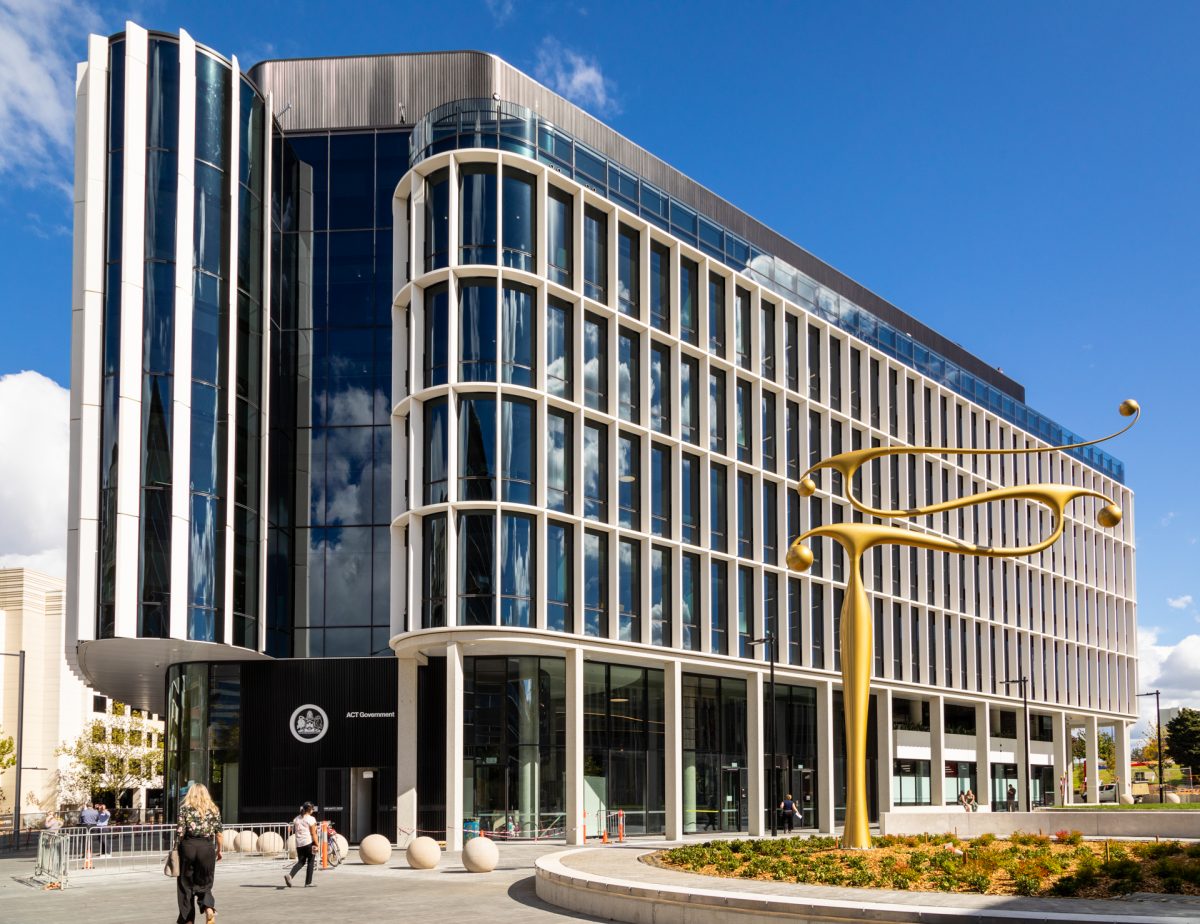
The ACT Public Service building in Civic has a family-friendly workspace. Photo: Michelle Kroll.
Flexible work arrangements developed in response to the COVID-19 pandemic restrictions have contributed to a record-low gender pay gap in the ACT Public Service, an annual report hearing at the Legislative Assembly has been told.
Chief Minister, Treasury and Economic Development Director-General Kathy Leigh told the Standing Committee on the Economy and Gender and Economic Equality that the gender pay gap had closed this financial year to 0.1 per cent from 0.5 per cent last financial year.
She said more than 50 per cent of staff were women, including at the senior executive level, and 50 per cent of directors-general were women.
“I think the flexibilities we offer has got a lot to do with that and I’m really keen to make sure that we hold on to that advantage and make sure that all of our staff are valued and that we recognise that they have other commitments in their lives,” Ms Leigh said.
She said that women, who statistically bear a greater load in terms of childcare and domestic responsibilities, had been big winners from new flexible work systems developed over the past couple of years.
“We’ve had excellent productivity and excellent feedback from staff … We’ve discovered that it is a positive way for us to work and we must hold on to that,” Ms Leigh said.
She said this meant the service and the community were getting the best value out of what staff had to offer, and also made it a more attractive place to work and easier to retain staff.
“It’s pretty horrifying to think that there are women who are being underutilised and our service is not getting the full benefit of what they could deliver simply because we didn’t recognise the flexibilities that we could provide,” Ms Leigh said.
Ms Leigh said innovations included a family-friendly workspace in the new building at 220 London Circuit so staff could bring their children with them if they needed to come into the office for a face-to-face meeting or to work on site.
The hearing was told that the ACT Public Service was not resting on its laurels but working to build on the gains it had made through embedding flexible and family-friendly arrangements in work agreements, extending flexibility where possible to frontline staff and attracting women to traditionally male-dominated areas such as engineering but also across the health sector.
Deputy Director-General, Workforce Capability and Governance, Dr Damien West, said gender action plans would be implemented in every directorate and entity over the next three to four years.
“We’ll be looking at agencies where there are segments that have been male dominated and thinking about what can we do to attract [women] and build those numbers and sustain those numbers in the workforce,” Dr West said.
He said Major Projects Canberra was already actively attempting to recruit more women to the agency.
Executive Group Manager, Industrial Relations and Public Sector Employment, Russell Noud, said the service was looking at how to expand flexible arrangements across the workforce through the current enterprise agreement negotiations.
“What we’re encouraging through the current agreement negotiations with unions but also through a policy framework is to facilitate a conversation between managers and employees to try to work through what options are available for a shift worker or a paramedic to be able to bring in flexibility to their work,” he said.
Mr Noud said there was no one-size-fits-all solution and sometimes it would not work.
“There are a number of vanilla solutions – jobsharing, working with a number of unions on changing our roster patterns to allow for more flexibility or more family-friendly work,” he said.
The pay talks that began in May were now at the “business end” and the common core was close to being settled.

















